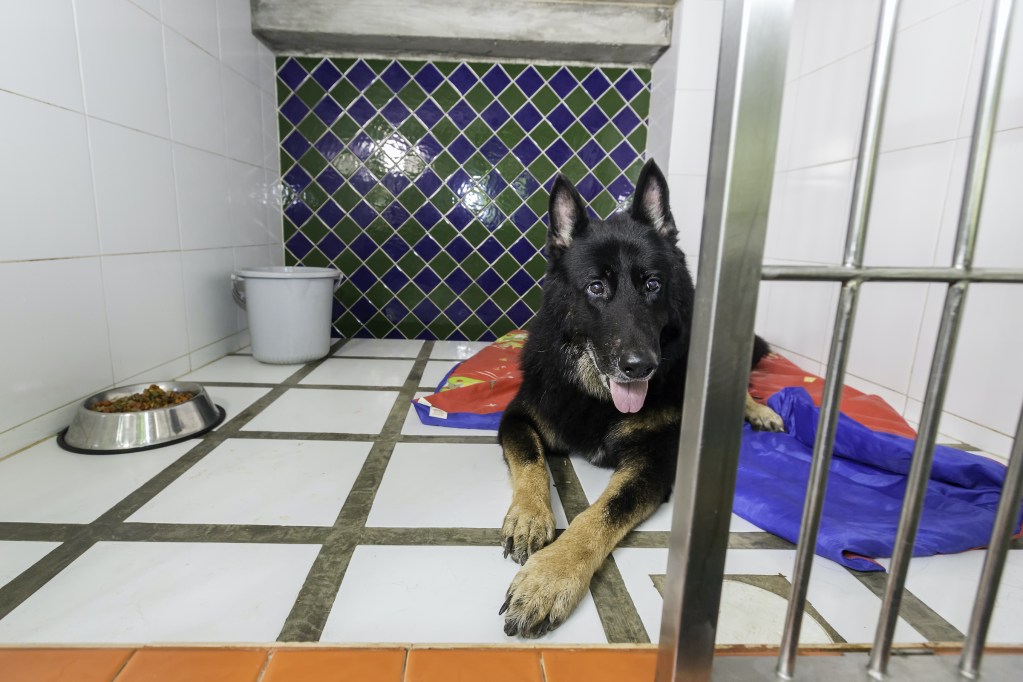As a pet parent, you want what’s best for your dog. Ensuring your pet stays up to date on vaccinations is essential. With human health, the recommendations are usually more straightforward — professionals recommend that people in certain age groups or with specific conditions receive vaccines at certain times. Some, like the flu shot, require regular boosters. Others provide long-term — and even lifelong — immunity.
What about pets, though? How often do dogs need vaccines? The answers aren’t always so straightforward, so working with your veterinarian to determine the best course for your dog is vital. This guide to dog vaccinations will provide a blueprint and hopefully spark a helpful conversation about your pet’s health with their veterinarian.
How often do dogs need vaccines?

The answer to this question depends on your pet’s life stage and lifestyle, local laws, and policies at places like groomers, boarding facilities, and doggie daycares. Here’s what to know.
Puppy vaccines
Your puppy will receive several vaccines in their first four months of life, including:
- Distemper, Adenovirus/Hepatitis, Parvovirus (DAP)
- DHLPP (two rounds, around 10 to 12 weeks and again at 16 weeks)
- Rabies
Depending on your puppy’s lifestyle and needs, they may also receive vaccines for:
- Bordetella
- Canine influenza
- Lyme
After that, you and your pet’s vet will work together to come up with the best schedule for your dog’s shots. Some will be annual, while others may not be necessary for your particular dog.
Adult dog vaccines
Each year, every dog should receive:
- Rabies (if using a one-shot vaccine)
- Leptospirosis
Depending on your dog’s lifestyle, they may also receive the following vaccines once per year:
- Bordetella
- Canine influenza
- Lyme
Notably, some dogs will need the Bordetella shot every six months. Speak with your vet and the staff at any facilities your dog frequents, like the groomer, to ensure you’re on the correct dosing schedule.
Every three years, dogs should receive the core vaccines of:
- Rabies (if using the three-year vaccine)
- DAP
What are the common dog vaccines?

Canine vaccines fall into one of two buckets: The core vaccines necessary for all pups and optional lifestyle vaccines. Let’s discuss if, when, and how often your pet will get these vaccines.
Core vaccines
Core vaccines are must-haves for all dogs (and in some cases, required by law). These canine vaccines include:
- Rabies
- Canine distemper/adenovirus-2 (hepatitis)/parvovirus/parainfluenza (usually given as one vaccine called DA2PP, DHPP, or DAPP)
- Leptospira (protects against a bacterial infection)
Lifestyle vaccines
While all vaccines are critical for preventing diseases — some of which are life threatening — you and your pet’s vet may determine that it isn’t necessary to get certain shots for your dog. It’s important to make these decisions with your pet’s doctor to ensure you’re getting accurate information about their health. Factors you and the vet might discuss include:
- Risks for certain diseases in your area
- Policies at doggie daycares and groomers
- Whether your dog spends time at dog parks
- Your pet’s travel and time spent in the wilderness
- Your pet’s health
Common lifestyle vaccines include:
- Canine flu (H3N2/H3N8)
- Kennel cough (Bordetella bronchiseptica)
- Lyme (Borrelia burgdorferi)
- Rattlesnake (Crotalux atrox)
What happens if your dog isn’t vaccinated?

Unvaccinated dogs are at a higher risk for preventable diseases that could cause long-term damage, short-term discomfort, and even death. They can also put other pets and humans around them at risk for diseases. For instance, rabies can transmit from dogs to people.
Skipping certain vaccines, like rabies, may also have legal consequences, and your pet may not be able to go to the groomer or doggie daycare.
If cost is an issue, your vet may be able to work with you on a payment plan or point you to a low-cost or no-cost clinic. Should you be concerned about adverse reactions — which are rare — your best bet is to speak with your pet’s veterinarian. They can share evidence-based advice.
Concluding thoughts

Vaccine frequency varies based on your pet’s age, geographic location, lifestyle, and the type of immunization you choose. For instance, all dogs need the rabies vaccine annually or every three years, depending on which form of the shot your vet uses.
Dogs that frequent boarding facilities or attend doggie daycare may need kennel cough yearly or every six months. Some vaccines, like Lyme, aren’t required but are critical if your pet lives or spends time in an area with ticks (such as if they adore long walks in the woods). You want what’s best for your pet’s health, so speak with your vet about the best vaccine schedule for your dog based on their unique needs.




